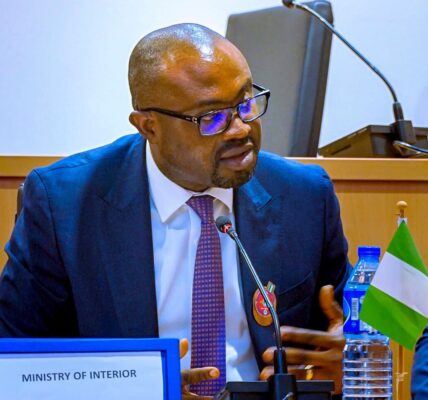Center for Strategic and Development Studies Ambrose Alli University, Ekpoma, Edo State on Globalisation, Faith And Terrorism
By Tunde Agbara
FREEPRESS — Since the past decade, the world has been experiencing a spate of international terrorism in which religion and religious movements and organisations have played prominent roles. Terrorism, killings, assassinations and other various acts of violence have been perpetrated by people and groups in the name of religion.
Religious beliefs therefore provide the basis for such violent acts and terrorism thereby introducing the term ‘religious terrorism’ into the lexicon of international policymakers. This term has also acquired an additional meaning; it has become a euphemism for political violence committed by religious fundamentalists such as Muslims or Christians.
To a large extent, this has made political scientists and analysts to lose sight of the fact that acts of violence and terrorism are not the exclusive preserve of these two religious fundamentalists alone. The modern state has had equal experience of terrorism from virtually every form of religious traditions.
History and past experience has recorded the actions of Timothy McVeigh, a Christian terrorist who bombed the Oklahoma City Federal Building on April 19, 1995; Yigal Amir, a Jewish activist who assassinated Israel’s Prime Minister Yitzhak Rabin; and Shoko Asahara, a Buddhist who was responsible for the nerve gas attack in the Tokyo subways near the Japanese parliament buildings.
In spite of all these, religious terrorism has been used as synonymous with Muslim fundamentalists basically because of all the religious traditions, Muslim fundamentalists have adopted the method of terrorism as a predominant way of expressing grievances more than any other religious tradition in the past decade.
However, not all acts of political violence perpetrated by members of a particular religious group qualified to be labelled religious violence. This is because issues of race and ethnic differences can lead to violent acts that can, and most often are, coloured by religious differences. This, therefore, makes the relationship between religion and political violence a complex issue.
The basic reality of the past and present decade have actually shown that religious terrorists have employed violence as a means of achieving political, economic and social objectives. In this respect, religion is seen and used as a means rather than an end in itself thereby making religion ideological. As an ideology, religion and religious beliefs have displaced other ideologies as a rallying call for collective actions. Where other ideologies have failed, religion seems to have succeeded. As an ideology, religion therefore justifies behaviour based on its system of beliefs.
As an ideology, religion therefore serves similar functions as political ideologies and these are (1) polarise and mobilise populations toward common objectives; (2) create a sense of security and belongingness by providing a system of norms and values to which all members could identify, and (3) provide the basis for the justification and rationalisation of human or members’ behaviour.
While there is nothing intrinsically violent in ideologies, they, however, provide the basis for differentiation and polarity among populations and organising political dissents which inevitably could lead to violence against those perceived as non-members. Thus, while religion may not be the sole cause of political violence, it provides an effective basis for organising political dissents and polarising the population. In this respect, religious violence seems to be directed against the secular state and its government.
This consideration raises two questions which this piece seeks to explore. These are (1) why is religion the basis for opposition to the state? Could there be reasons why religious fundamentalists are against the secular state? (2) although instances of religious differences have existed since the ages, why has it become an issue now or why has it escalated to the proportion of terrorism now?
The trajectory we have chosen to provide answer to these two questions and related ones, will take us first through a consideration of the concept of terrorism, a look at how globalisation and modernisation have changed or impacted on the nature of violence and the escalation of religious violence; an attempt to recast the Nigerian experience of religious conflicts within the rubric of globalisation and modernity and finally, an explanation of the implication of religious terrorism on the development modern state system in general.












